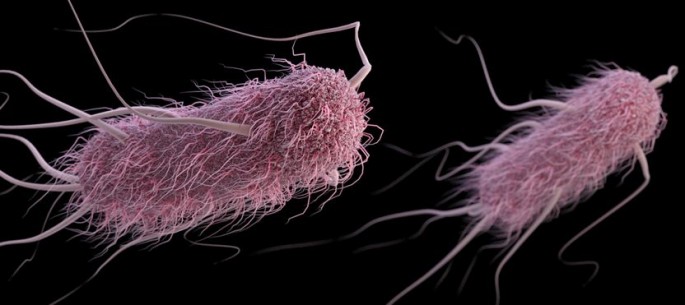The mcr-1 gene -- a gene that makes bacteria resistant to colistin (the antibiotic of last resort) and that's transferrable between bacteria -- has been found in a wide variety of strains of Escherichia coli in China because of the widespread use of colistin by Chinese farmers in agriculture.
Two new studies published in The Lancet Infectious Diseases provide evidence about how widely the mcr-1 gene has spread to bacteria in clinical settings, including to a minority already resistant to the carbapenem class of antibiotics.
The study results highlight the need for caution and careful prescribing when China introduces colistin. China will soon introduce colistin for the first time to treat humans.
Infections resistant to carbapenems are already common in many countries, and in these cases only a small number of antibiotics are effective, including colistin.
In 2015, the mcr-1 gene was discovered in China and subsequently identified in other countries including Denmark, Germany, Vietnam, Spain, and the USA among others. This discovery raised fears that bacteria may acquire combined colistin and carbapenem resistance, making them multi-drug resistant.
Two just published studies come at an important time in China. Colistin, which has been used extensively in farming in China since the 1980s, was recently banned for use in agriculture, and will soon be introduced in clinical use for the first time.
The first study, led by Professor Timothy Walsh at Cardiff University (UK) and Professor Jianzhong Shen at the China Agricultural University, looked at the prevalence of bacteria carrying the mcr-1 resistance gene in human infections in two hospitals in Zheijang and Guangdong provinces across eight years.
Among more than 17,000 bacterial isolates associated with infection, mcr-1 was detected in 76/5332 samples of E coli and 13/348 samples of Klebsiella pneumoniae.
The study is the first to look at risk factors for clinical mcr-1 infection. It found that people who had used antibiotics (particularly carbapenems) before hospitalization were more likely to carry bacteria with the mcr-1 resistance gene.
Among 146 isolates of mcr-1-positive E coli identified, only five were also carbapenem resistant.
"The emergence of mcr-1 heralds the breach of the last group of antibiotics, such as colistin," said says Professor Tim Walsh.
"The withdrawal of the drug from agricultural use, and its introduction in the clinic might reduce colistin resistance rates in the community, and increase resistance in hospitals where they may be harder to treat or spread more easily.
"Our study finds that there are significant risk factors for the spread of mcr-1 infections, beyond just rural living and diet. The spread of colistin resistant bacteria will likely worsen when the drug is introduced in humans."
The second study led by researchers at Zhejiang University (China) tested samples from over 2,000 bloodstream infections at 28 hospitals in China.
Of the 1495 E coli samples, 20 were mcr-1 positive, one of which was also carbapenem resistant. Patients with mcr-1-positive infections were all treated successfully with other antibiotics.
"The most troubling problem for clinicians would be the transfer of colistin resistance to a bacterium which is already carbapenem resistant, making it multi-drug resistance," according to Professor Yunsong Yu of Zhejiang University.
"This does not appear to have happened to any great extent in clinical isolates, but the situation should be monitored carefully as the country prepares to introduce colistin for use in humans."



























